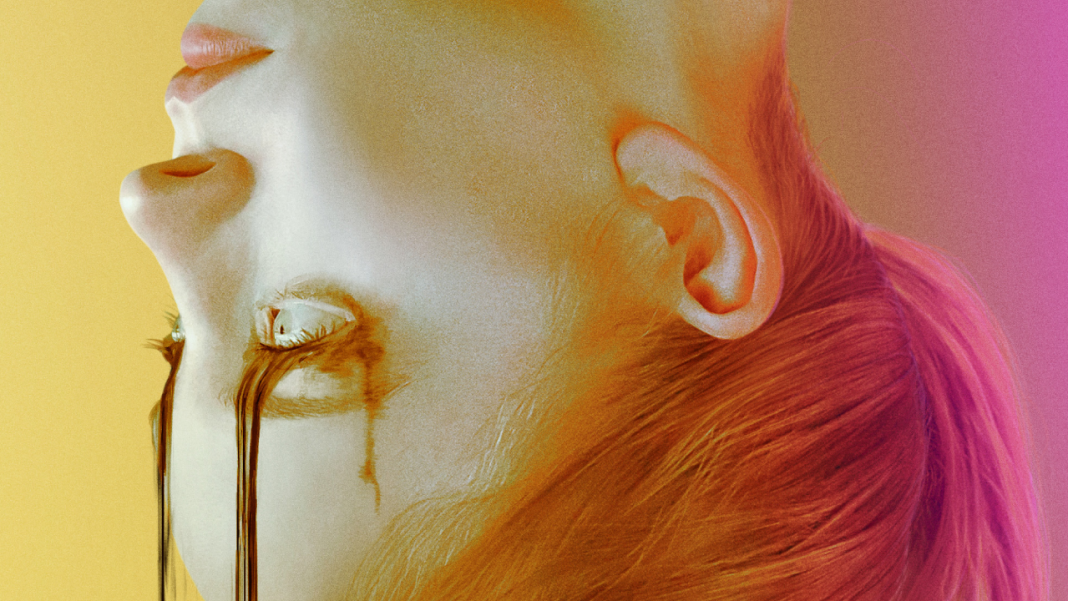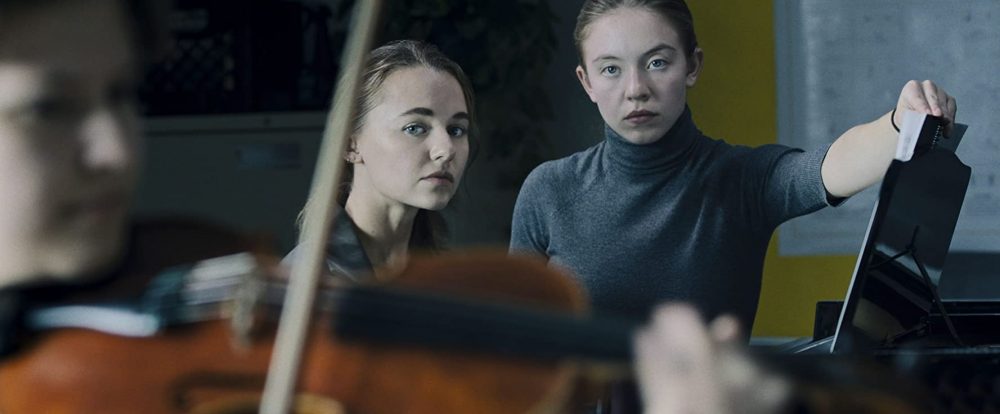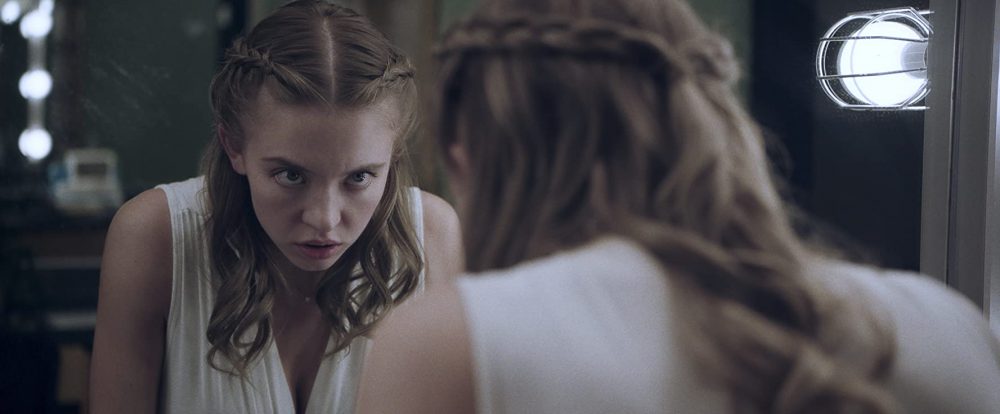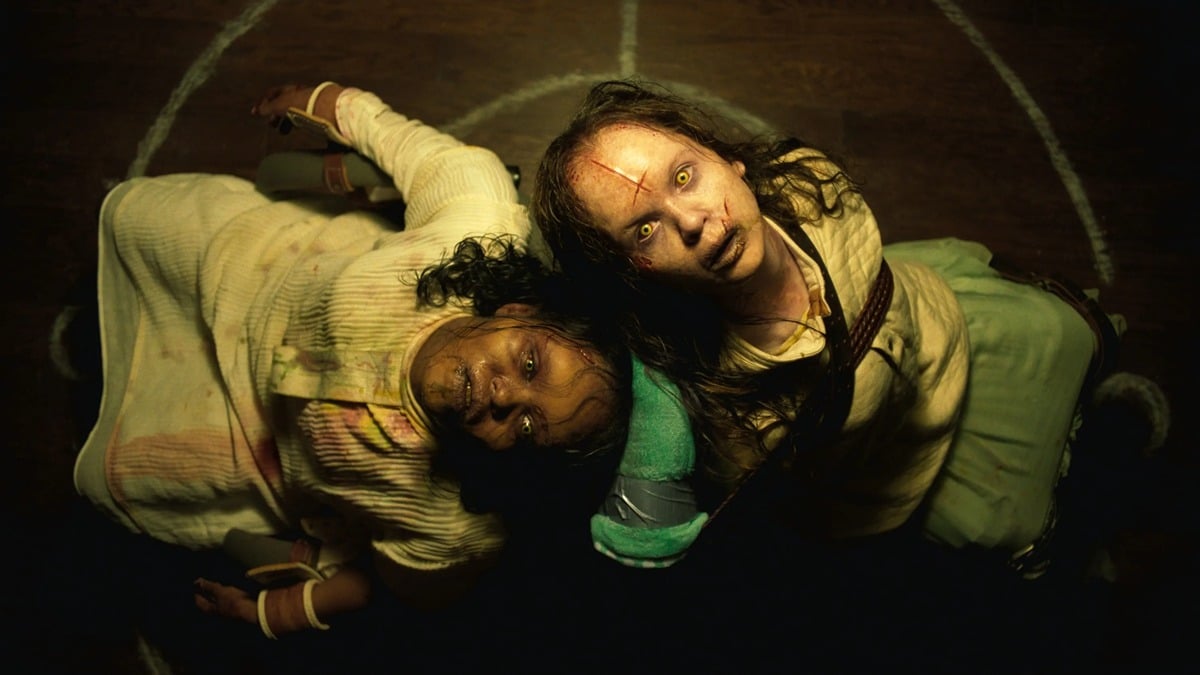Never hold a conversation or make a deal with the devil because the price to be paid will always be too high. Unfortunately, young pianist Juliet Lowe learns this to her own detriment in the disturbing drama Nocturne, directed and written by Zu Quirk.
Living in her twin sister Violet’s (Madison Iseman) shadow has never been a pleasant place to be for Juliet (Sydney Sweeney), but when everyone around them begins to fawn over Vi in the excitement of her acceptance to the prestigious Julliard, Juliet is unable to take it. Her chance to finally outshine Vi coincidentally – or maybe not – arrives when Juliet finds the musical theory notebook belonging to Moira, a former student of their academy who jumped to her death 6 weeks previously.
Filled with backward writing, disturbing images of disfigured people, the book’s connection to Moira should give Juliet pause, but she ignores any possible misgivings. Believing she’ll have a chance to show scouts from Julliard and Violet that she’s just as good as her sister, Juliet decides to perform ‘Second Concerto In G Minor’ by classical musician Camille Saint-Saëns, the same piece Violet plans to play at the showcase open to all students.
It’s not difficult to see why Juliet has an inferiority complex. There’s no one in her life that encourages or believes in her. When together as a family, the girls’ parents are constantly comparing their daughters to each other, and mentioning embarrassing moments from Juliet’s childhood. As children, it was Juliet who first expressed an interest in learning to play the piano after falling in love with Gershwin’s music in An American in Paris, but because she was the favored twin, their parents enrolled Violet for lessons as well.
At school, the professors show no confidence in Juliet’s abilities and actually discourage her from pursuing music as a career. But most upsetting of all is how she’s treated by her own sister. For some reason, unknown to the audience, Violet harbors deep animosity and possibly hate for Juliet. She never misses the opportunity to turn their interactions into an occasion to make cutting comments about Juliet’s abilities and intellect.
With the showcase date creeping closer, Juliet becomes increasingly agitated, as her playing begins to improve drastically. She also seems to be drawn to Moira’s book and anything relating to it, after reciting the poem written on the front page. By reading the poem, Juliet seems to have unwittingly become possessed, perhaps having made a bargain with the dark entity whose image is found within the pages. There are some subtle and not so subtle changes in her personality and appearance. When she plays the piano, the camera focuses on her hands, and gone are the smooth, supple fingers of a teenager. Her hands are now more mature in appearance and move with a fervor of someone with years more experience than that of a 17-year-old.
At the beginning of the film, Juliet’s wardrobe consisted of turtlenecks, long sweaters, and jeans, but with her new confident and outspoken personality comes dresses with deeper necklines and shorter hems. Though it’s fun to see this change in her, there’s no mistaking that it comes as the result of the dark presence in her life. Especially when she gets that murderous glint in her eyes.
Thematically, Quirk and her production team have created a very pleasingly atmospheric film with Nocturne. Carmen Cabana‘s cinematography provides many of the more disturbing elements are conveyed through the dark and oppressive feeling of rooms with limited lighting, such as the practice rooms in the bowels of the music academy or Moira’s dorm room. As the camera moves through hallways, around Juliet and from her point-of-view the edge of the lens takes on a slightly distorted shape similar to a fisheye lens, giving the viewer the sense of being disoriented. That combined with the seamless editing by Andrew Drazek, the sudden and at times jarring scene and score transitions, visuals of a brightly burning yellow sun, and use of mood lighting in muted shades of red and blue serves as cues that something supernatural is occurring.
Performance-wise the actors all do a great job of being engaging. One person who stood out apart from the main leas was Ivan Shaw, who plays one of the music professors. His performance is intriguing and slightly unsettling in a way that makes one question if he could be the devil incarnate himself. Sweeny and Iseman not only look enough alike to pass for fraternal twins, but their energy works really well when they face off against each other. The resentment that simmers just below the surface is believable enough that you want more scenes of them together.
What doesn’t work in the film is why the sisters have such a difficult relationship. We’re left to infer as to what the cause of this rift is. Perhaps it’s that Violet took people’s favoritism to heart, but what we’re shown doesn’t give enough context to explain the way she gaslights and belittles Juliet. I would’ve liked there to have been more plot and character development, especially when no one questions how Juliet’s playing improved in such a short space of time, and why her attitude became a complete 180 from what it was before. There should’ve been at least one or two scenes to see what they were like before Juliet became so petty.
While the film may not work for everyone, I’m sure it will be entertaining for those who love sibling rivalries, drama, classical music in a supernatural film that might have you looking over your shoulder and talking at the screen, asking why Juliet doesn’t just burn the book and salt the ashes.
Nocturne is part of the new “Welcome to the Blumhouse” anthology film series created by Jason Blum in partnership with Amazon Studios.
Nocturne is currently streaming on Amazon Prime Video.









